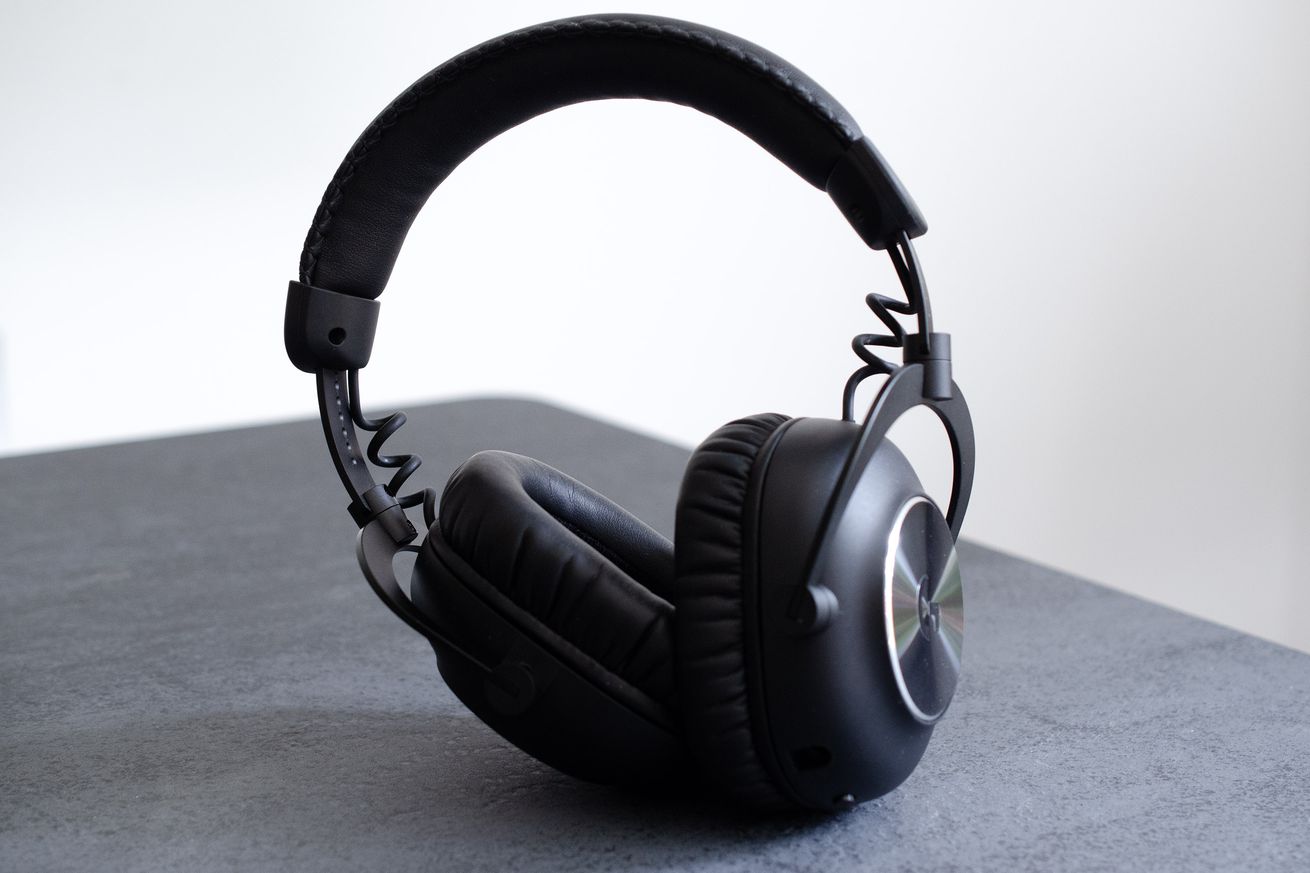
Logitech’s new G Pro X 2 gaming headset has graphene audio drivers
Logitech is announcing a new G Pro X 2 Lightspeed gaming headset today that features graphene audio drivers. You’ve probably heard of graphene, the miracle form of carbon that has been promised by many over the past 20 years to change the world of technology. While we haven’t seen graphene used to create space elevators or make the internet run faster just yet, Logitech is using it to create headphone drivers that are lightweight.
“With our use of graphene, we can create a driver that is both incredibly rigid and, at the same time, almost impossibly lightweight,” says Chris Pate, principal product manager for the Logitech G Pro series of products. “This delivers high fidelity sound with extremely low distortion, giving pros the performance they need to play to their maximum potential.”
Logitech is using a 50mm graphene diaphragm for the audio driver inside the G Pro X 2. It’s designed to make sound more immersive alongside a 25g weight reduction compared to the original Pro X. I’ve been testing the G Pro X 2 headset over the past few days, and while the sound reproduction is great in games, I haven’t noticed a huge difference over my daily SteelSeries Arctis Nova Pro.
Having said that, the surround sound support and DTS sounds fantastic in first-person shooter games where you need to hear footsteps clearly, and I’ve definitely noticed I can more easily hear which direction a grenade is thrown or the sound of a weapon.
Logitech thinks this graphene implementation should result in more accurate decision-making for pro gamers and give them the competitive edge. As I’m 39 years old and still try to compete in first-person shooters, I think I lost my competitive edge nearly 20 years ago, so anything that can help is music (or gunfire) to my ears.
Beyond the graphene, what I really like here is that Logitech has added Bluetooth support and even 3.5mm aux wired connectivity. Bluetooth is great if you want to use this gaming headset connected to your phone on the go or if you pack the headset away and forget the dongle that enables the Lightspeed wireless connection.
Logitech has also more than doubled the battery life of the original Pro X gaming headset. It now lasts up to 50 hours on a single charge over USB-C. That’s up from the 20 hours on the original X Pro, and I haven’t had to charge the Pro X 2 yet after a few days of hands-on testing.
There are also some subtle and welcome changes to the design of the Pro X 2. Rotating hinges have been added for comfort or just the ability to hang these around your neck more easily. I’ve been using the Pro X 2 for more than eight hours per day, and they’re super comfortable for the duration. There are swappable ear pads in either leatherette or velour, depending on what you prefer. Both are included in the box alongside a simple carry case and the detachable microphone.
The microphone hasn’t changed at all from the original Pro X, which is rather disappointing. I’m not a fan of headset microphones either way, so I’ve been mostly using the Pro X 2 paired with an XLR microphone instead.
Logitech’s move to DTS surround sound audio on the Pro X 2 over Microsoft’s Windows Sonic surround is definitely welcome. You can set the multichannel surround modes to be optimized for gaming, entertainment, or sports, and each virtual surround sound element can be controlled individually with an overall bass level, too.
Logitech’s G Hub is rather basic for audio controls, though. The equalizer is super basic, and while there are options to create new EQ presets, it lacks the customization found in the SteelSeries Sonar features.
Logitech will start selling the G Pro X 2 gaming headset on May 30th, priced at $249 in the US and €269 across Europe. That’s $20 more than the original G Pro X, but it’s probably worth the extra coin for the greatly improved battery life alone, alongside the lighter frame, rotating ear cups, and ability to confuse or impress your friends on Discord by telling them your headset is powered by graphene.

